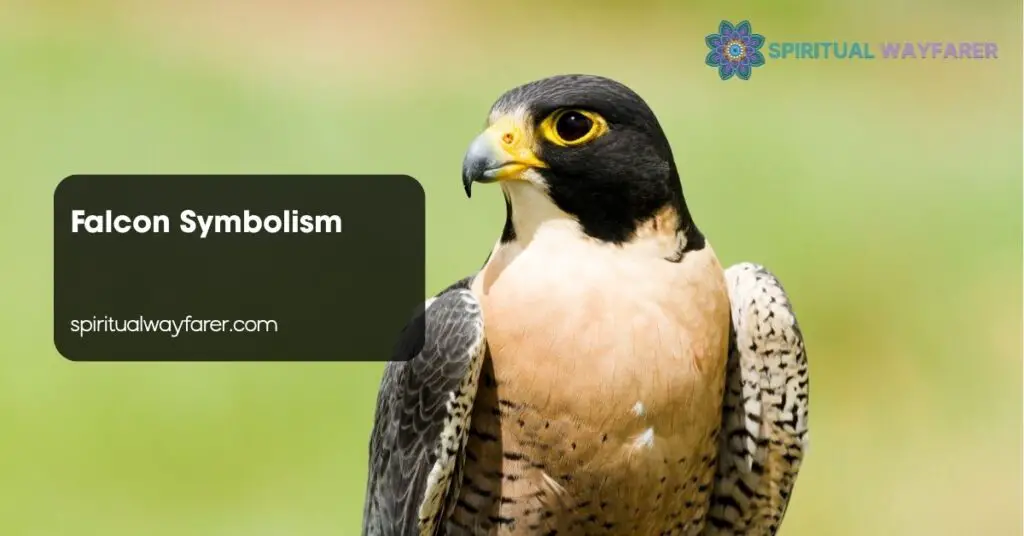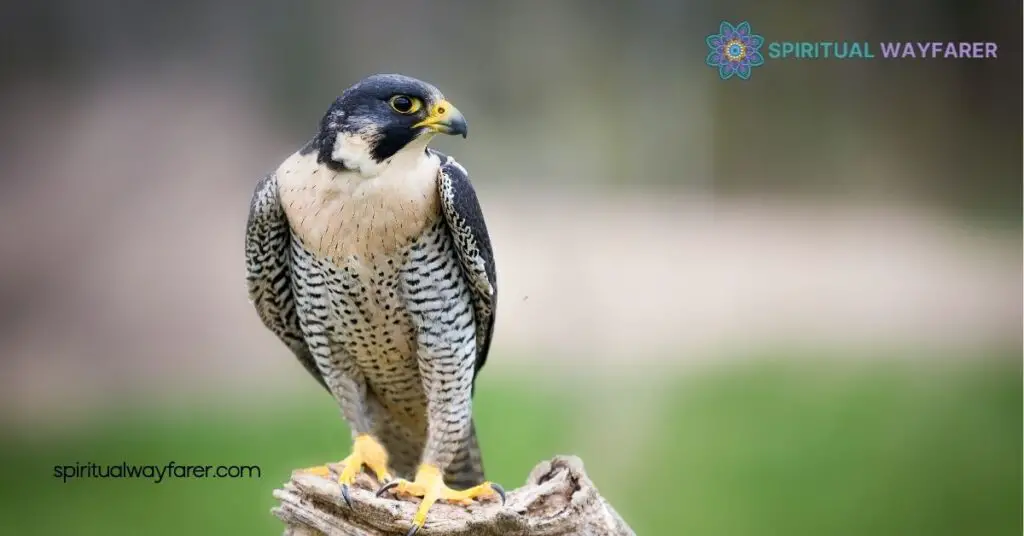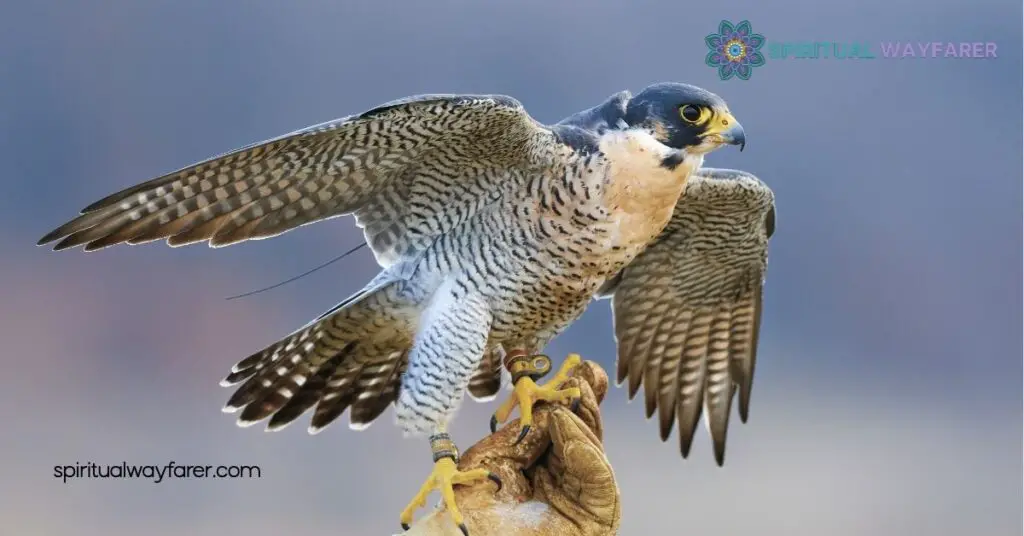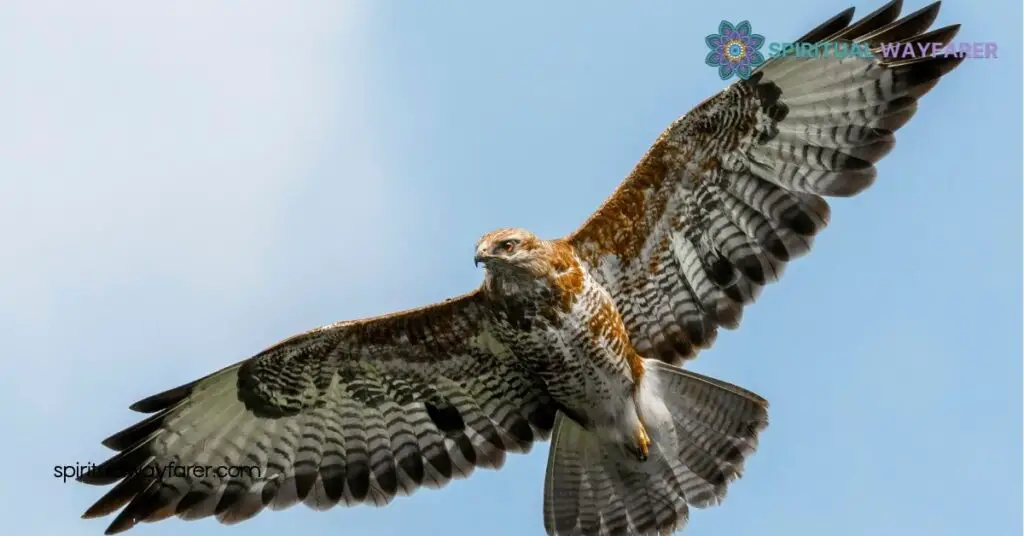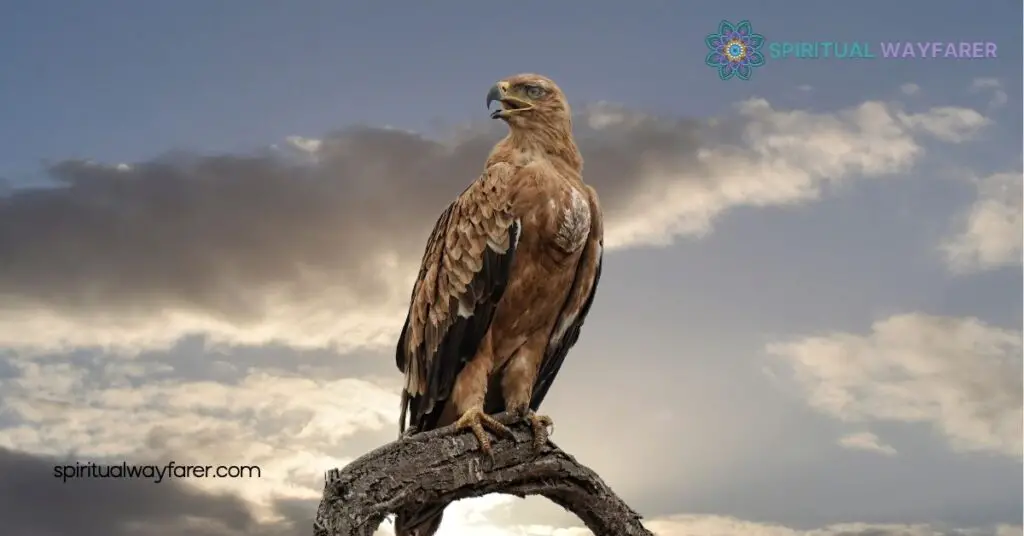There’s something undeniably captivating about falcons. We’re drawn to their grace and agility, symbols that have stood the test of time across various cultures. Falcons represent not only power and freedom but also keen vision and determination.
Exploring into falcon symbolism reveals rich layers of meaning that resonate with us today. Whether in ancient mythology or modern spirituality, these majestic birds inspire us to soar above challenges and pursue our highest goals. Join us as we uncover the fascinating significance of falcons and how their enduring presence influences our understanding of strength and ambition.
The Historical Significance of Falcon Symbolism
Falcons have held profound symbolic meanings throughout history. Their presence spans various civilizations and eras, reflecting their enduring influence.
Ancient Civilizations
In ancient Egypt, falcons represented the god Horus, embodying kingship and the sky. Pharaohs often depicted themselves with falcon heads to signify divine authority. Similarly, Mesopotamian cultures revered falcons as messengers of the gods, linking them to power and protection. These civilizations utilized falcon imagery in art, architecture, and religious ceremonies, underscoring the bird’s sacred status.
Medieval Symbolism
During the medieval period, falcons symbolized nobility and prowess in Europe. Falconry became a favored sport among the aristocracy, demonstrating status and skill. Heraldry frequently featured falcons, representing vigilance and swift action in family crests. Also, literature of the time portrayed falcons as noble companions, reinforcing their association with honor and valor.
Falcons in Mythology and Religion
Falcons hold important symbolic meanings in various mythological and religious traditions. Their attributes often embody power, protection, and divine authority.
Egyptian Mythology
In Egyptian mythology, the falcon symbolizes divine kingship and celestial power. Horus, one of the oldest Egyptian gods, is depicted with a falcon’s head, representing protection, kingship, and foresight. This imagery reflects the falcon’s sharp vision and swift flight, embodying vigilance and determination valued in ancient Egyptian society[^3][^4][^5].
Ra, the sun god, also features a falcon’s head, linking the bird to solar power and authority. The association with Ra emphasizes the falcon’s role in representing celestial dominance and divine rule.
Pharaonic symbolism further elevates falcons as royal birds, signifying the Pharaoh’s divine authority. Pharaohs are often portrayed with falcon heads, highlighting their connection to the divine and their elevated status[^2][^3][^4].
Native American Beliefs
In Native American cultures, falcons represent strength, courage, and spiritual insight. They are viewed as messengers between the earthly area and the divine. Tribes incorporate falcon imagery into art and ceremonies, reflecting their revered status as guardians and intermediaries. The falcon’s keen vision and agility illustrate the virtues of perception and swift action, essential traits for spiritual and community leadership.
[^2]: Source Reference 2
[^3]: Source Reference 3
[^4]: Source Reference 4
Cultural Representations of Falcons
Falcons appear prominently in various cultural expressions, reflecting their enduring symbolic significance. Their representations span across literature, art, and modern media, illustrating diverse interpretations of their attributes.
Literature and Art
Falcons feature extensively in literature and art, symbolizing themes like freedom and power. In classical literature, authors like Edgar Allan Poe use falcons to represent keen vision and determination. Artistic depictions often highlight their graceful flight and sharp features, emphasizing elegance and strength. Middle Eastern poetry celebrates the falcon’s role as a noble hunter, while European heraldry incorporates falcons to signify nobility and valor. Contemporary artists continue to draw inspiration from falcons, portraying them in both realistic and abstract forms to explore motifs of agility and perspective.
Modern Media
Modern media showcases falcons in various formats, reinforcing their symbolic meanings. Films and television series frequently depict falcons as symbols of freedom and resilience, often associating them with heroic characters. Video games incorporate falcons as avatars or companions, improving gameplay with their swift and strategic characteristics. Advertising campaigns use falcons to convey messages of speed, precision, and excellence, leveraging their powerful imagery to attract audiences. Also, documentaries and nature programs highlight falcons’ natural behaviors, educating viewers about their ecological importance and inspiring conservation efforts.
Symbolic Meanings of the Falcon
Falcons serve as powerful symbols in many cultures, representing a variety of important concepts. They embody freedom, power, vision, and precision, influencing our understanding of these attributes.
Freedom and Power
We see falcons as icons of freedom and power, symbolizing the pursuit of personal and spiritual liberty. Their ability to soar to great heights and navigate challenges with agility highlights their association with grace and strength. In medieval Europe, falconry was reserved for nobility, making falcons symbols of status and authority. Also, falcons’ independence underscores their representation of individuality and the drive for personal growth and excellence.
Vision and Precision
Falcons symbolize vision and precision through their exceptional eyesight and hunting skills. Their clarity of vision and foresight illustrate the importance of focus and strategic planning. Falcons’ ability to concentrate on their goals ensures they achieve their targets with accuracy and efficiency. This sharp perception reflects the value placed on determination and meticulousness in various cultural contexts.
Conclusion
Falcons remain powerful symbols that resonate deeply with us through their representation of strength and freedom. Their remarkable vision and agile nature inspire us to pursue our goals with clarity and determination. Across various cultures falcons embody qualities we value such as leadership courage and resilience. By reflecting on falcon symbolism we gain insights into our own aspirations and the strength needed to achieve them. These majestic birds remind us to stay focused and embrace our journey toward excellence. As we appreciate the enduring legacy of falcons in mythology art and modern media we recognize their lasting impact on our understanding of power and ambition. Embracing the lessons they embody we are motivated to navigate challenges with grace and strive for our highest potential.
Frequently Asked Questions
What do falcons symbolize in ancient Egyptian culture?
In ancient Egypt, falcons represented the god Horus, symbolizing kingship and divine authority. Falcons were seen as messengers of the gods, embodying protection and celestial power. The falcon-headed gods, like Horus and Ra, signified vigilance and strength, reflecting the falcon’s sharp vision and swift flight. This imagery reinforced the association of falcons with divine kingship and authority in Egyptian society.
How are falcons viewed in Native American cultures?
In Native American cultures, falcons are symbols of strength, courage, and spiritual insight. They are considered messengers between the earthly and divine realms, embodying keen vision and agility. Falcons represent leadership qualities, such as determination and clarity of purpose. Their presence in traditions and stories highlights their revered status and the essential traits they symbolize for guiding individuals on their spiritual and personal journeys.
Why were falcons symbols of nobility in medieval Europe?
During medieval Europe, falcons became symbols of nobility and prowess. Falconry, the sport of hunting with falcons, was a privilege reserved for the aristocracy, reinforcing their social status. Falcons frequently appeared in heraldry and literature, representing honor and valor. Their association with the nobility highlighted traits like grace, strength, and precision, making falcons enduring emblems of noble lineage and esteemed character.
How do falcons inspire individuals to overcome challenges?
Falcons inspire individuals by embodying qualities such as determination, keen vision, and agility. Their ability to soar and navigate obstacles serves as a metaphor for personal and spiritual growth. Falcons encourage people to strive for their highest aspirations, using focus and strategic planning to overcome challenges. By reflecting the falcon’s grace and strength, individuals are motivated to pursue their goals with resilience and clarity.
What role do falcons play in modern media and literature?
In modern media and literature, falcons symbolize freedom, resilience, and heroic qualities. Authors like Edgar Allan Poe use falcons to represent keen vision and determination. In films and television, falcons are often associated with heroic characters, while video games feature them as avatars or companions enhancing gameplay with their swift traits. Advertising campaigns leverage falcons’ powerful imagery to convey speed and excellence, and documentaries highlight their ecological importance, fostering conservation efforts.
What are the key symbolic traits of falcons?
Falcons symbolize freedom, power, vision, and precision. Their ability to soar freely represents personal and spiritual liberty, while their strength and agility signify power and resilience. Falcons’ exceptional eyesight and hunting skills embody keen vision and strategic precision. These traits highlight the importance of focus, determination, and meticulous planning, making falcons revered symbols in various cultural contexts for their embodiment of these essential qualities.
How is falconry connected to falcon symbolism?
Falconry, the ancient sport of hunting with falcons, is closely tied to falcon symbolism, especially in medieval Europe. It was a privilege of the nobility, reinforcing their status and associating falcons with authority and prestige. Falconry highlighted the falcon’s grace, agility, and precision, traits admired by the aristocracy. This connection solidified falcons as symbols of nobility, honor, and valor, ensuring their enduring presence in heraldry and cultural representations of the elite.
In which mythologies are falcons significant and why?
Falcons hold significant roles in various mythologies, including Egyptian and Native American traditions. In Egyptian mythology, falcons are linked to gods like Horus and Ra, symbolizing divine kingship and protection. Their sharp vision and swift flight represent vigilance and authority. In Native American mythology, falcons are seen as spiritual messengers and symbols of strength and courage. These mythological roles underscore the falcon’s importance as a powerful and revered symbol across different cultures and eras.

